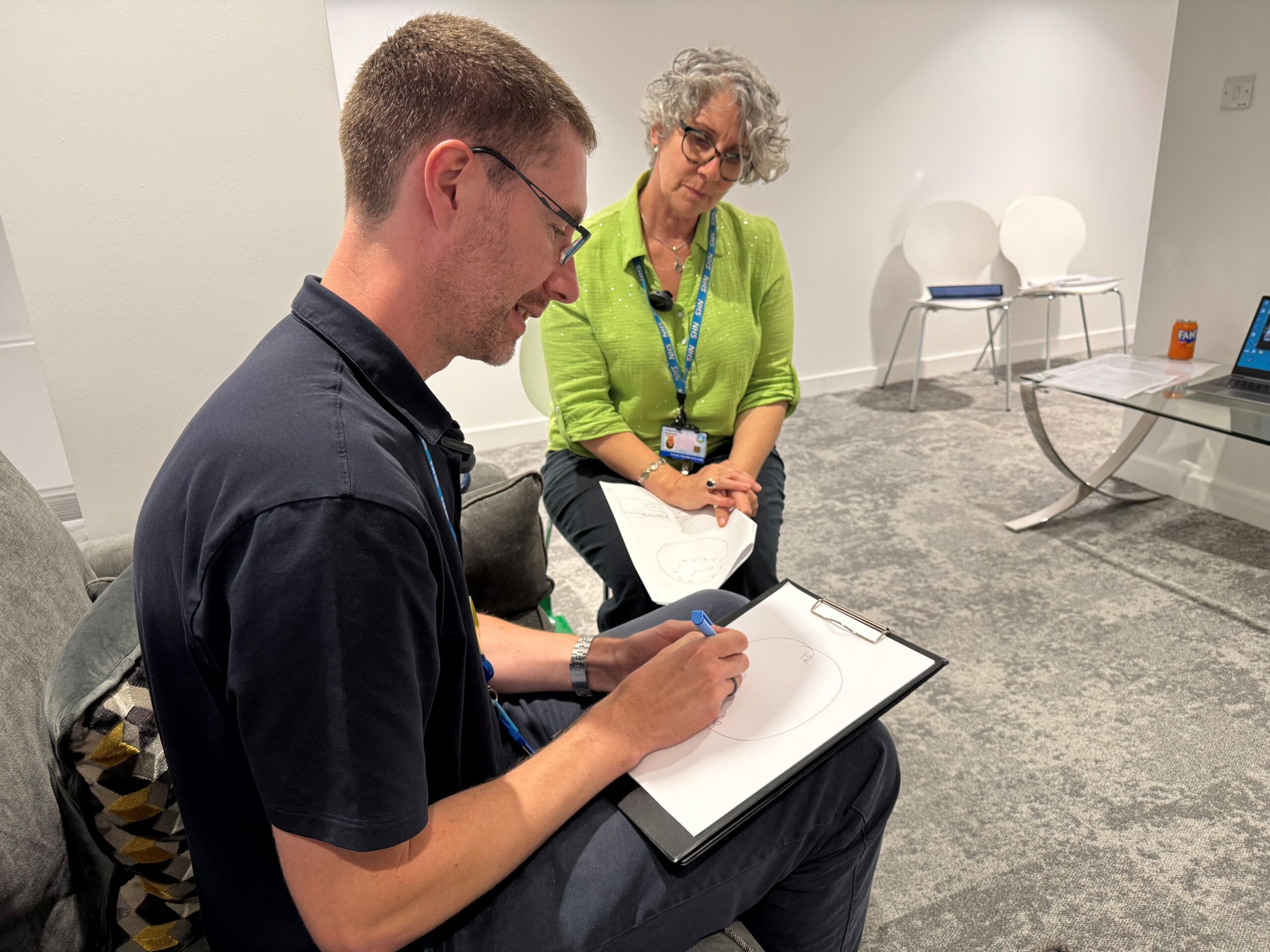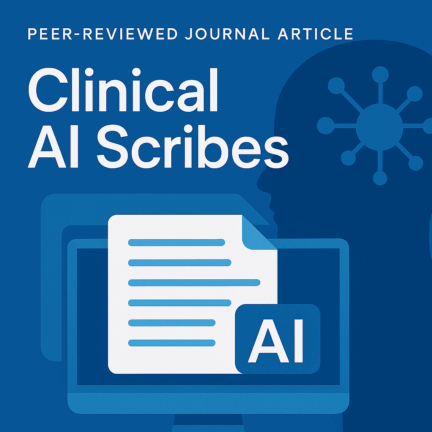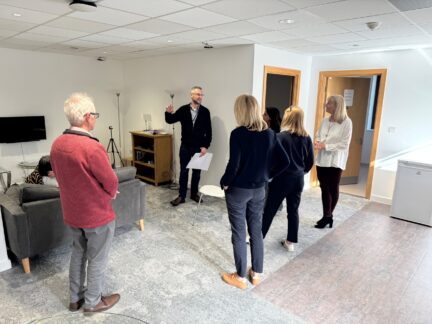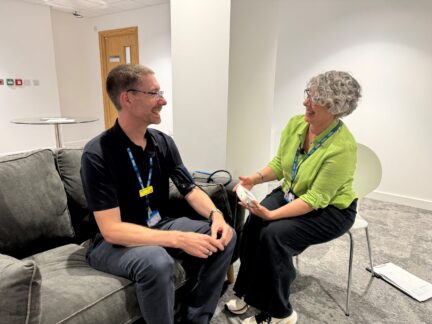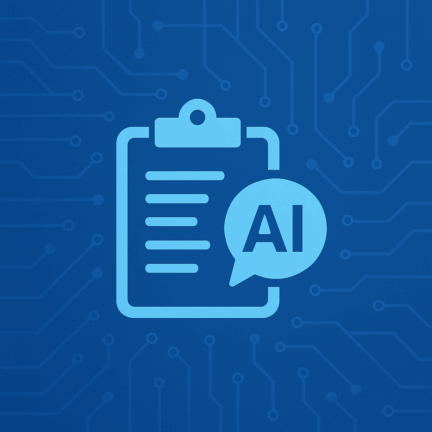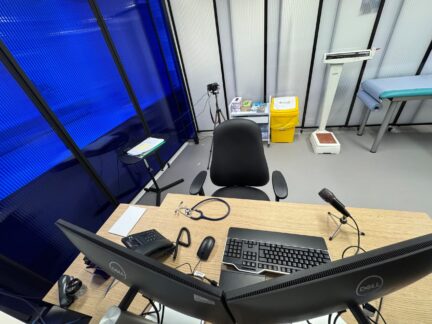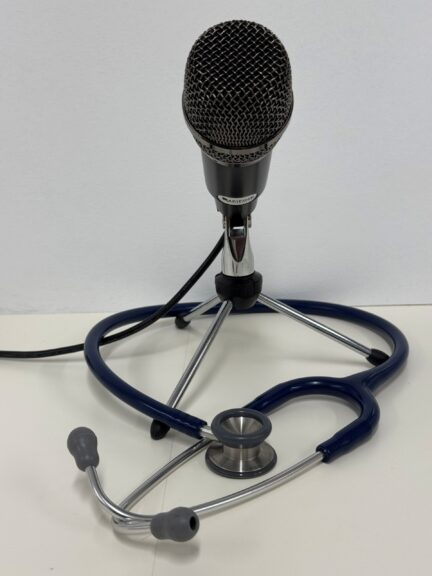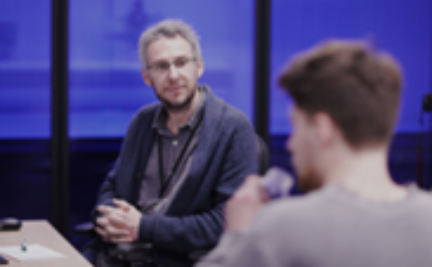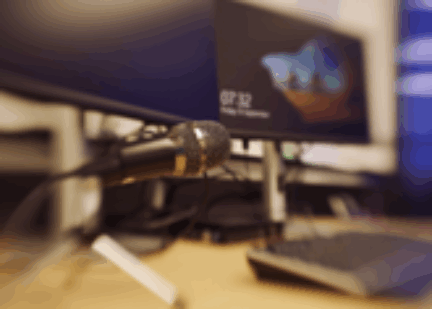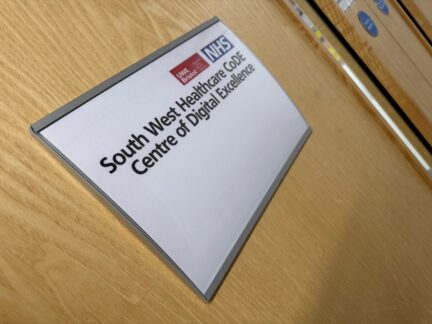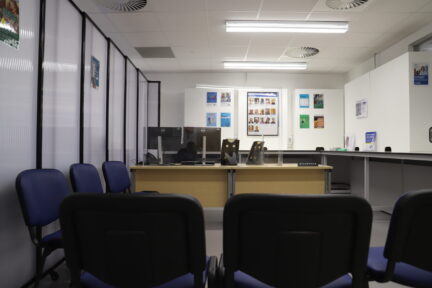
On Thursday 7th August 2025, Sally-Anne Bauer, Senior Community Matron, and Paul Brick, Wellbeing Coordinator, both from South Cotswolds Frailty Service, visited the Centre of Digital Excellence (CoDE) at the University of the West of England (UWE) to contribute to the development of scenarios for the ongoing ‘Clinical AI Scribes (CAIS) in Holistic Assessment’ study. Their collaboration with UWE researchers underscores the importance of real-world clinical input in shaping the future of healthcare technology.
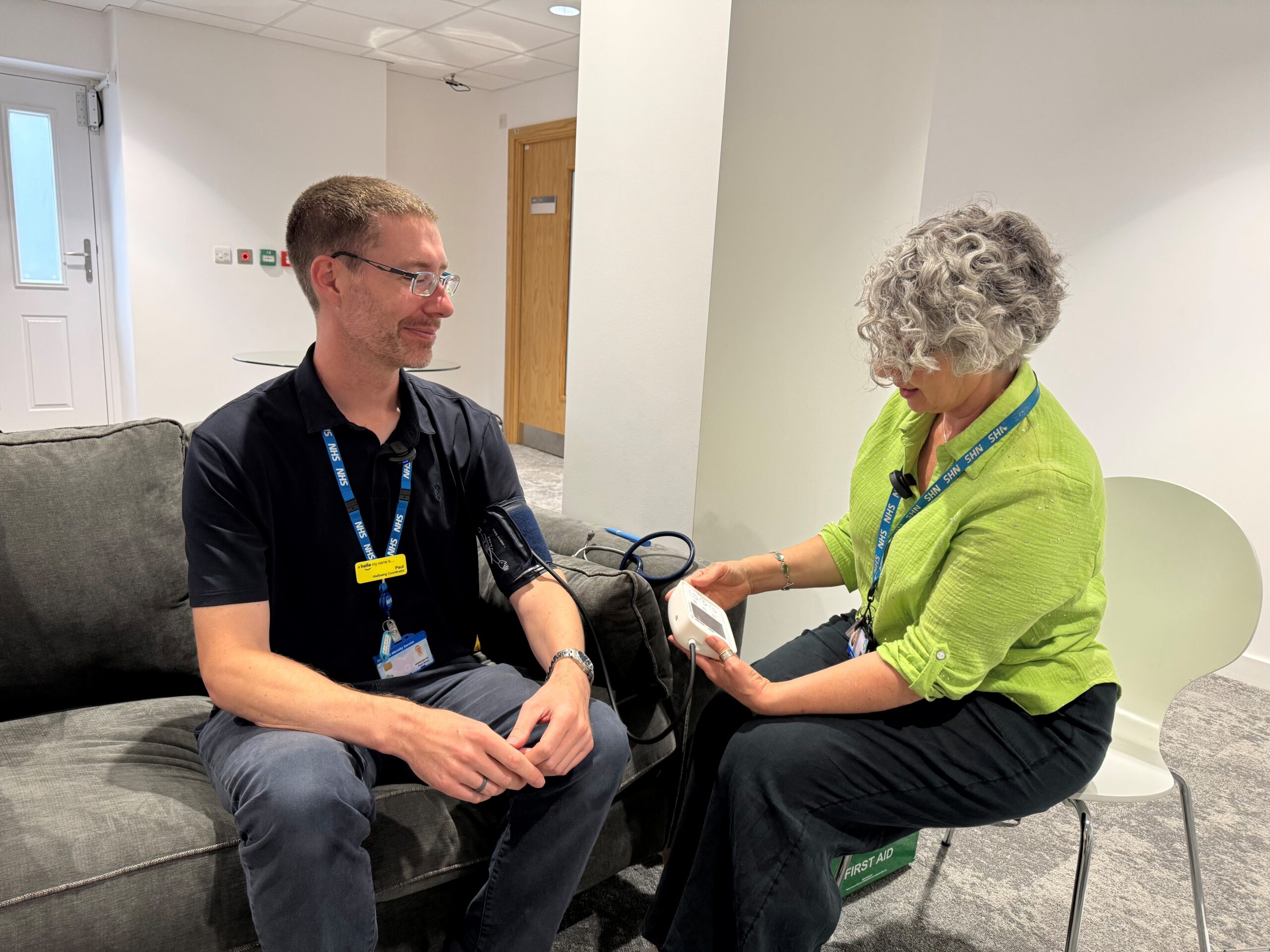
A Key Partnership Between Clinical Practice and Research
UWE colleagues from the CoDE team including Dr. David Attwood (Project Manager), Dr. Tom Draper (Research Fellow), and Dr. Tim Cox (Research Analyst), welcomed Sally-Anne and Paul to the laboratory and explained how vital their input would be in ensuring that digital solutions meet the practical needs of healthcare providers. As Dr. Tom Draper noted, “It’s really brilliant to have the Gloucester frailty team here working with us at the CoDE, drawing upon their expertise strengthens both our current holistic assessment work but also our wider understanding of how they would exploit clinical AI scribes in the community.”
Enhancing Clinical AI Solutions with Real-World Expertise
After developing and recording the scenarios, some of which lasted almost an hour, Sally-Anne and Paul were able to observe a demonstration of how a Clinical AI Scribe could be used in practice to generate patient notes and prepare referral letters. This process illustrates the practical application of AI in reducing administrative workloads, potentially transforming the way clinicians interact with their patients. With AI scribes assisting in documentation, healthcare professionals can dedicate more time to patient care and less time to administrative tasks. This interaction with AI technology offers a glimpse into the future of healthcare, where technology supports, rather than hinders, clinical practice.
The involvement of experienced clinicians such as Sally-Anne Bauer and Paul Brick adds invaluable depth to the CoDE’s AI research. Sally-Anne shared her enthusiasm for the initiative, stating, “It’s exciting to be involved in supporting something like this, that potentially enables teams like ours to spend more time with patients and less time in the office writing notes and referrals.” This highlights the potential benefits of AI technology in reducing administrative burdens and enhancing patient care by allowing healthcare professionals to focus on direct interaction with patients.
Paul Brick also expressed his optimism for the future, saying, “It’s an eye-opener in what the future of the NHS might look like,” emphasising the significance of integrating AI tools into everyday clinical practice.
Building Authenticity and Rigour in CoDE Studies
Dr. Benjamin Johns, Clinical Scientist and Senior Project Manager for the NHS England South West Region Digital Transformation Team at CoDE, emphasised the importance of authentic clinical input in the research process. He explained, “The CoDE is a simulated clinical environment where innovative digital solutions can be tested in a safe sandbox environment. However, it’s crucial that our set-up accurately portrays the clinical settings experienced by our frontline clinicians and patients. By inviting fellow clinicians such as Sally-Anne into our laboratory, it ensures our research and evaluations have the necessary authenticity and rigour to provide assurance of our findings to clinicians. Clinician involvement at every stage of the process is vital for ensuring that emerging technologies are developed with the realities of healthcare delivery in mind. By collaborating with clinicians who are at the forefront of patient care, CoDE ensures that its research is grounded in real-world experience, which increases the likelihood of successful integration into clinical environments.”
Dr. Johns also expressed gratitude to Claire Jones, Clinical Lead for Digital Transformation at NHS England South West and a Nurse by profession, for facilitating the collaboration with the frailty team. CoDE is an innovative space that brings together the minds of clinicians, academics and technical experts to test and evaluate emerging technologies to ultimately improve the healthcare service for our patients.
The input from clinicians such as Sally-Anne and Paul ensures that the work undertaken by CoDE has real-word practical applications and is impactful in clinical settings.
